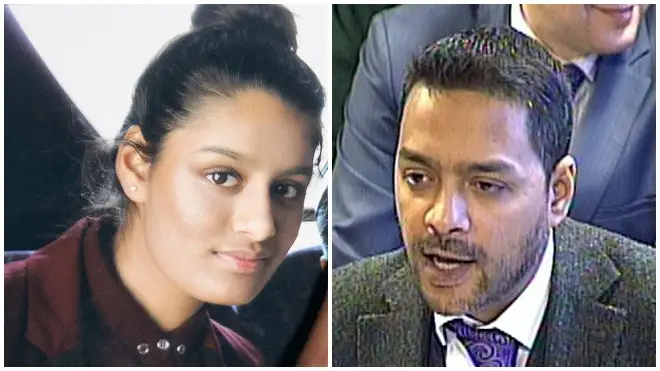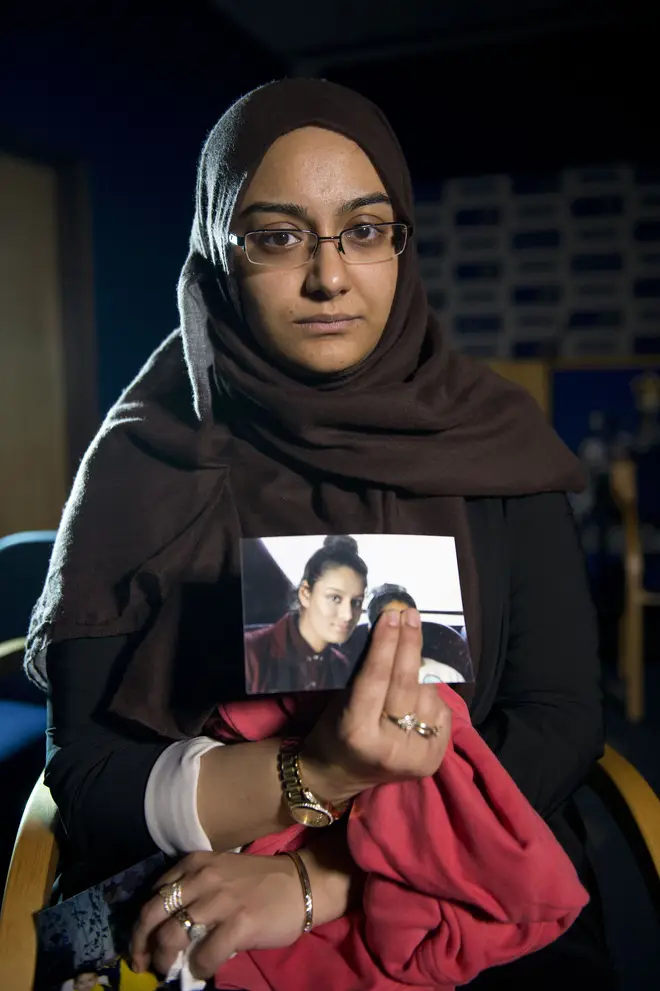
Lewis Goodall 10am - 12pm
22 October 2019, 08:51

The decision to strip jihadi bride Shamima Begum of her British citizenship is unlawful because it rendered her stateless, a court heard today.
Ms Begum, now 20, left the UK in February 2015 and lived under ISIS rule for more than three years. She was found, nine months pregnant, in a Syrian refugee camp in February this year.
Former home secretary Sajid Javid revoked her British citizenship, a decision her lawyers argued today was unlawful.
Ms Begum is bringing proceedings against the Home Office before the High Court and the Special Immigration Appeals Commission (SIAC), a specialist court which hears challenges to decisions to remove someone's British citizenship on national security grounds.

The Home Office says the decision did not render Ms Begum stateless because she had dual British-Bangladeshi citizenship.
At the start of a four-day preliminary hearing in London on Tuesday, Tom Hickman QC told Mrs Justice Elisabeth Laing that the court had to determine "whether the deprivation decision rendered the applicant stateless".
He added that it also had to decide "whether she can, in her situation, have a fair and effective appeal and, if not, what the consequences of that are and, thirdly, whether the deprivation decision gave rise to a real risk of death or degrading and inhuman treatment".
Mr Hickman said SIAC "will not be considering the national security case against the appellant or the proportionality of the decision to deprive her of citizenship".
At the start of the hearing, Mr Hickman told the court that lawyers for the Home Office had recently sent a letter to Ms Begum's lawyers in relation to the al-Roj camp in Syria, where Ms Begum is being held.
Mr Hickman said the letter, dated October 18, "expressed the view or the assessment that Camp al-Roj is likely to be unguarded and any detainees are free to leave, without reference to any corroborating material".
He added: "As far as we are aware nothing material has changed at al-Roj, albeit that the environment there is incredibly fragile and dangerous."

In his written submissions, Mr Hickman said Ms Begum "is not considered a national of Bangladesh and was therefore rendered stateless by the deprivation decision".
He added that Ms Begum could face the death penalty in Bangladesh, adding: "There have been as many as 2,000 staged killings of individuals suspected of involvement with extremist groups since 2001."
Ms Begum, then aged 15, was one of three schoolgirls from Bethnal Green Academy who left their homes and families to join IS, shortly after Sharmeena Begum - who is no relation - travelled to Syria in December 2014.
Kadiza Sultana and Amira Abase, then 16 and 15 respectively, and Ms Begum boarded a flight from Gatwick Airport to Istanbul, Turkey, on February 17 2015, before making their way to Raqqa in Syria.
Ms Begum claims she married Dutch convert Yago Riedijk 10 days after arriving in IS territory, with all three of her schoolfriends also reportedly marrying foreign IS fighters.
She told The Times in February that she left Raqqa in January 2017 with her husband but her children, a one-year-old girl and a three-month-old boy, had both since died.
Her third child died shortly after he was born at the al-Hawl camp in northern Syria.
Mrs Justice Elisabeth Laing is expected to reserve her judgment.